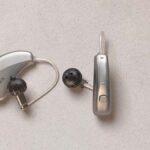
Signs You Are Due for a Hearing Assessment: Exploring Symptoms that Warrant a Hearing Test
Hearing loss is a common condition that affects millions of people worldwide. It can occur gradually over time or suddenly due to ageing, exposure to loud noises, ear infections, or certain medical conditions. Often, individuals may only be aware of their hearing loss once it reaches an advanced stage. Regular hearing assessments are crucial for early detection and intervention.
Recognizing these symptoms can help you take proactive steps towards maintaining healthy hearing:
Difficulty understanding speech
One of the earliest signs of hearing loss is experiencing difficulty understanding speech, especially in noisy environments. You may find it challenging to follow conversations, mainly when multiple people are speaking or when there is background noise. Struggling to hear and comprehend what others are saying can be frustrating and lead to social withdrawal or communication breakdowns.
Frequently asking for repetition
If you frequently ask others to repeat themselves or say “What?” or “Pardon?” during conversations, it may indicate hearing loss. Often, individuals with hearing impairment struggle to catch certain sounds or words, leading to the need for constant repetition. This can be particularly noticeable when conversing over the phone or in poor acoustics.
Turning up the volume
Do you often turn up the volume on your television, radio, or other electronic devices to higher levels than others find comfortable? Adjusting the volume excessively can signal that you are compensating for hearing loss. If your family or friends frequently comment on the loudness of your devices, it’s time to consider a hearing assessment.
Tinnitus
Tinnitus refers to the perception of ringing, buzzing, hissing, or other phantom ear sounds. While tinnitus can have various causes, it is often associated with hearing loss. If you experience persistent tinnitus, especially if accompanied by other signs of hearing impairment, such as difficulty hearing conversations, it is essential to have your hearing evaluated.
Withdrawal from social situations
Untreated hearing loss can lead to feelings of isolation and withdrawal from social activities. Struggling to hear and communicate effectively can make social interactions challenging and exhausting. If you find yourself avoiding gatherings, parties, or group conversations due to difficulties understanding others, assessing your hearing health is crucial.
Misunderstanding or misinterpreting conversations
Hearing loss can lead to miscommunication and misunderstandings. You may frequently need to be more accurate with what others say, respond inappropriately, or provide unrelated responses. These communication challenges can strain relationships, impact work performance, and diminish the overall quality of life.
Exhaustion after social interactions
If you frequently feel mentally and physically drained after social interactions, it could result from straining to hear and comprehend conversations. Individuals with untreated hearing loss often expend significant energy trying to follow discussions, leading to increased fatigue. If you regularly feel exhausted after engaging in conversations, it is advisable to schedule a hearing assessment.
Recognizing the signs that indicate you may be due for a hearing assessment is crucial for maintaining healthy hearing and overall well-being. If you experience difficulty understanding speech, frequently ask for repetition, constantly adjust the volume on electronic devices, or suffer from tinnitus, it is time to prioritize your hearing health. Similarly, withdrawal from social situations, misunderstandings during conversations, and post-interaction exhaustion are all signs that warrant a hearing assessment.
Remember, early detection and intervention are vital in managing hearing loss effectively. Consult a qualified audiologist or healthcare professional to evaluate your hearing and discuss potential treatment options. Addressing hearing loss proactively improves your quality of life, enhances communication, and maintains healthy relationships.
If you recognize any signs mentioned in this article, don’t hesitate to schedule a hearing assessment. The assessment will involve a series of tests to measure your hearing sensitivity, identify the type and severity of hearing loss, and determine the most suitable course of action. This may include hearing aids, assistive listening devices, or other interventions tailored to your needs.
Remember, hearing loss can affect individuals of all ages, so it’s essential to prioritize regular hearing assessments, regardless of age or lifestyle. Even if you don’t exhibit any signs of hearing loss, it’s still recommended to have your hearing checked periodically to detect any changes early on.
Steps to protect and preserve your hearing health
In addition to scheduling a hearing assessment, there are other steps you can take to protect and preserve your hearing health.
These include:
- Minimizing exposure to loud noises: Limit your exposure to loud sounds or use hearing protection, such as earplugs or earmuffs, when in noisy environments or when engaging in activities like concerts, sporting events, or operating power tools.
- Practising good ear hygiene: Keep your ears clean and dry, and avoid inserting foreign objects into your ears that can cause damage or increase the risk of infection.
- Managing underlying health conditions: Certain medical conditions, such as diabetes or cardiovascular disease, can contribute to hearing loss. Proper management of these conditions can help reduce the risk of hearing impairment.
- Educating yourself: Stay informed about the potential risks and causes of hearing loss and the available treatments and technologies. This knowledge will empower you to make informed decisions about your hearing health.
- Avoid using headphones or earbuds at high volumes: The potential risk can be extreme with excessive use of high volumes so take control of your your hearing health and as much as possible, lower down audio volumes while using headphones or earbuds.
- Take breaks from loud noise if you are exposed to it for extended periods of time: Wear ear protection when you are around loud noise, such as at concerts or sporting events.
- Get your hearing checked regularly, even if you don’t think you have a problem.
Remember, addressing hearing loss promptly can significantly improve your quality of life and overall well-being. By recognizing the signs that indicate you may be due for a hearing assessment and taking proactive steps, you are prioritizing your hearing health and investing in a better future.
Take the first step today and schedule a hearing assessment with a qualified professional. Your hearing is precious, and by preserving it, you can continue to engage in meaningful conversations, enjoy the sounds of life, and maintain healthy relationships for years to come.










